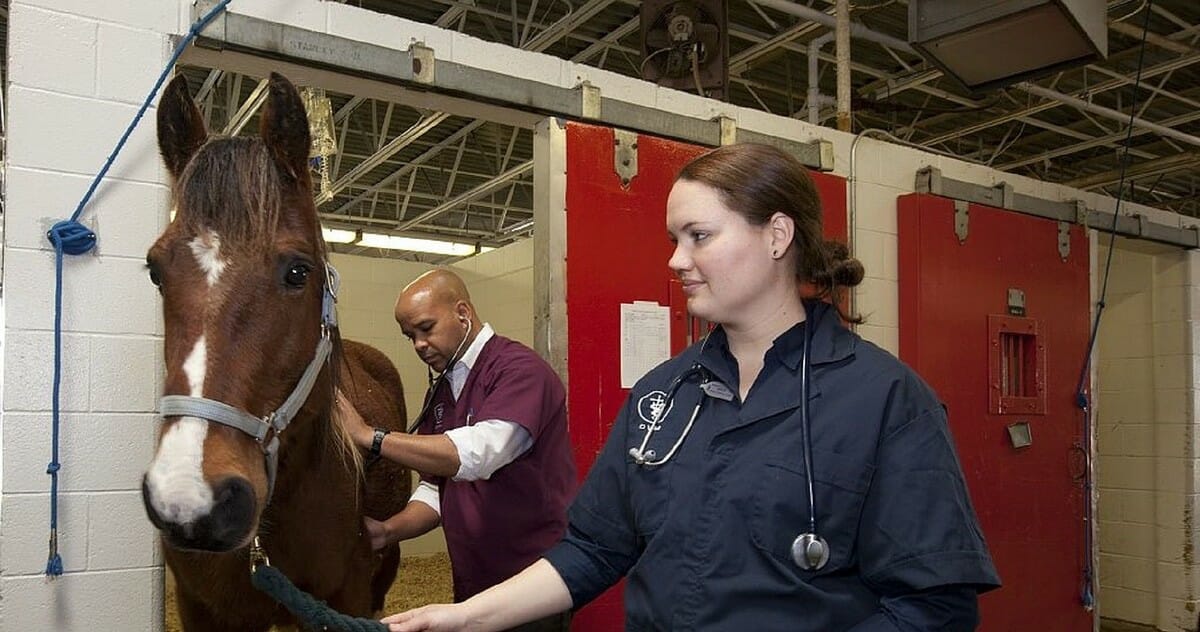By Dr. Parker T. Barker
Obviously, it is really important to your pet who you pick to provide their medical care, but it is also really important that the pet owner, you, and the veterinarian are able to build a trusting relationship. Ideally, you choose your vet before you actually get a dog or a cat. A vet can be very helpful in providing useful information for you or even recommend the type of dog or cat that might fit well into your family. You certainly want to have a vet in place before your pet gets sick and needs to see a vet right then and there. That is definitely not the time to be trolling the yellow pages so to speak.
There are many different types of vet practices for you to consider as well. Here is a list of some you may run across:
- Small animal practice: These veterinarians work mainly with dogs and cats. Many also care for pocket pets, reptiles, ferrets, and birds.
- Mixed animal practice: These veterinarians are commonly found in more rural areas as they work with pets as well as horses, cattle, and other farm animals.
- Emergency clinics: These clinics are very helpful in the event an emergency occurs outside of your veterinarian’s regular office hours. They do not typically handle routine check-ups, vaccinations, or spays/neuters. Emergency clinics may also see patients who need 24-hour care or exams with specialized equipment to perform procedures such as ultrasonography or endoscopy that the veterinarians in the surrounding area do not have at their facilities.
- Exotics clinics: These veterinarians specialize in caring for reptiles, birds, ferrets, and species other than dogs and cats.
- Avian clinics: These veterinarians specialize in companion bird health.
- Dog only clinics: These veterinarians limit their practice to dogs only.
- Mobile practices: Some veterinarians will travel to your house to treat your pet just like some travel to farms to treat farm animals.
The veterinarians that limit the species of patients to which they provide care, such as ‘dog-only,’ are able to devote more time to learning about that particular species. This allows for more in-depth knowledge of disease processes in that species. In many multi-doctor practices, the doctors have individual interests which they pursue.
The way to start is by doing some research on the internet. This should provide you with a comprehensive list to begin your investigations. Friends, family, neighbors, workers in grooming salons or local pet stores are all invaluable resources to evaluate possible vets in the area.
Also, if your area has a breed specific club or association, those members could also provide you with names of practices that may have a more in-depth knowledge of the type of issues that are commonly affiliated with that particular breed.
So you have picked out a few that meet your basic requirements and come with good references, what do you do next? Check out three key areas – office hours, how they handle problems after hours and what the staff is like. Find out answers to questions like:
- What are the regular office hours? If they aren’t open on Saturday and you work Monday through Friday an hour away, that might not work too well.
- How are emergencies handled during business hours? How are they handled when the practice is closed or over holidays?
- How long does it take to get an appointment for a wellness exam versus a ‘sick pet’ appointment?
You can tell a great deal about a practice by who and how the phone is answered. Keep these questions in your head when you contact them for the first time:
- Is the staff knowledgeable and courteous?
- How are questions over the phone handled?
- Are phone calls answered quickly? After they answer, are you put on ‘hold’ for a long time?
- Can you see a specific doctor if you are at a multi-doctor practice?
- Did you get a good feeling from the person you talked with?
Do not make cost your determining factor when choosing a veterinarian. It is very difficult to compare costs for medical services because every veterinarian practices differently. Expect to pay a fair price for the services received. In a critical situation, cost is usually not your first concern, so choose quality care above all else. Your pet is more than a financial investment. Along with cost, find out if credit cards accepted and whether there are any discounts available for the military as an example?
Now, off you go to do a site visit. Just like walking into someone’s house or a local store, you will get an immediate “vibe” about the practice. And in this case, your gut reaction is usually the right one, so listen to it. Things that make that “vibe” a little off putting are things like whether the facility is clean and neat? Are there unpleasant odors? Loud noises? Lots and lots of pets in the waiting room? You get the idea. If it in any way makes you uncomfortable, think how your pet will feel if you brought them here?
Just like for our hoomans, there are specialties that require board certification. Here are some of the more typical specialties you may find:
- Internal medicine: Specializing in the diagnosis and treatment of disorders that involve the internal organs such as the liver, kidneys, and pancreas.
- Surgery: orthopedic and soft tissue: Specializing in the diagnosis and treatment of disorders that need surgery to repair such as back surgery, complicated fractures, or abdominal surgery.
- Dermatology: Specializing in the diagnosis and treatment of skin disorders including allergies.
- Behavior: Specializing in the diagnosis and treatment of behavioral problems such as aggression, separation anxiety, or house soiling.
- Oncology: Specializing in the diagnosis and treatment of cancers.
- Radiology: Specializing in reading x-rays, CAT scans, MRIs, and ultrasounds.
- Cardiology: Specializing in the diagnosis and treatment of heart diseases.
- Ophthalmology: Specializing in the diagnosis and treatment of eye disorders.
And then there is a dearth of homeopathic and other alternative medicines that exist in the pet world. Since I refuse to become a Vegan, I usually stay away from them but there are lots of emerging ways to treat cancer in pets so on this one, you are on your own.
So, take the time to make sure the “fit” is right between you, the veterinarian, and your pet. It is a very important relationship and one that needs to have a solid communications platform if the vet is going to do his or her very best for your pet. And that is what you really want isn’t it?







